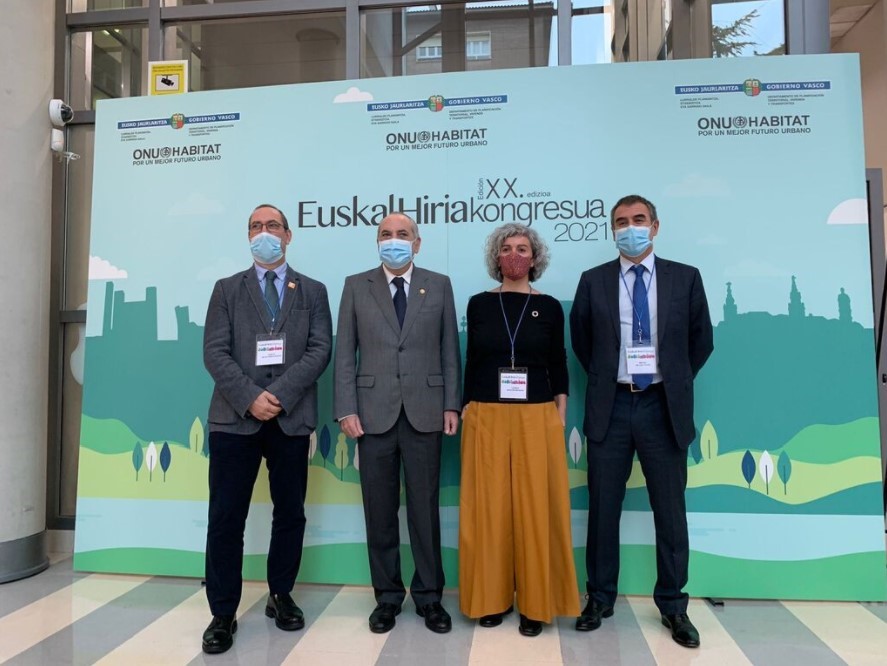Vitoria, Spain, 15 December 2021 -- The need to intervene in the territory and in inhabited environments to achieve a green socio-economic recovery was the focus of the 20th edition of the EuskalHiria Congress, organized by the Department of Territorial Planning, Housing and Transport of the Basque Government, in collaboration with the UN-Habitat Office in Spain.
During November 29 and 30, in the city of Vitoria, global, national and Basque professionals and experts gathered in order to exchange experiences in relation to the challenges and opportunities that currently characterize territories and cities, focusing in the Intervention as an instrument to achieve a healthier territory, which was the main theme.
The Congress was opened by the Basque Country Counselor of the Department of Territorial Planning, Housing and Transport, Iñaki Arriola, and the Head of the UN-Habitat Office in Spain, Carmen Sánchez-Miranda.
In his inaugural speech, Arriola stated that "the pandemic has highlighted the need to regenerate urban spaces as a key strategy for a healthy life" and "for this, one of the instruments that the Basque Country has is the Bultzatu 2050 Agenda, a pioneer in regional agendas that promotes safe, resilient and sustainable cities.”
For her part, Sánchez-Miranda stressed that “the Sustainable Development Goals (SDG) ensure that short-term objectives are in line with long-term objectives. And Urban Agendas are the framework for localising the SDGs."
In addition, she said "the city is not isolated from the territory. The New Urban Agenda was adopted from a territorial perspective and an urban-rural continuum, and cities are the invisible chains that link the SDGs.”

Raf Tuts, Director of the Global Solutions Division, on behalf of the Executive Director of UN-Habitat, Maimunah Mohd Sharif, participated through a video link and thanked the Government of the Basque Country for the opportunity to work together in the elaboration of the Basque Urban Agenda and invited attendees to participate in the Eleventh session of the World Urban Forum to be held from June 26 to 30 in Katowice, Poland.
Katja Shaefer, Interregional Advisor of UN-Habitat, closed the first day's sessions by highlighting the key messages of the Cities and Pandemics report and recalling that rapid urbanization is accelerating and action-oriented decisions are urgent.
During the two days, the event discussed four thematic topics: “urban regeneration and recovery plans”; “city and territory, key challenges”; “urban transformation in a social level: health, equality, culture, employment; and “transformation in a green level: mitigation and adaptation to climate change”, where the role of urban regeneration in the transformation of cities was highlighted.
At the closing ceremony, Shipra Narang Suri, Head of the Urban Practices Branch, thanked the Government of the Basque Country for including UN-Habitat in the discussions and congratulating the Basque Country for pushing ahead with Basque Urban Agenda despite the COVID-19 pandemic.
In addition, she stressed that "urban regeneration is key to mitigating climate change and maintaining temperature and is essential for inclusion, poverty reduction and recovery of the pandemic."
The EuskalHiria Congress has been held in the Basque Country since 2002 and seeks to promote the debate on the territory, the city and rural areas in the context of the region.